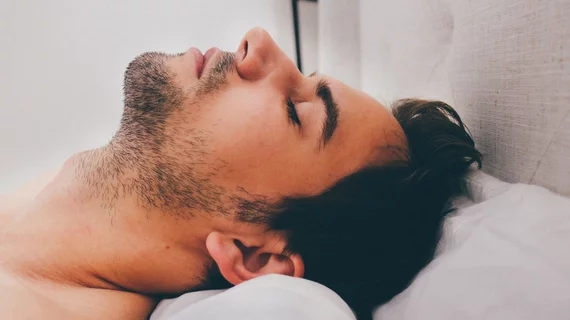Sleep apnea trackable by smartphone with AI assistance
When it comes to testing patients for the presence and severity of obstructive sleep apnea (OSA), the gold standard is a full, overnight polysomnography workup in a dedicated sleep-studies unit.
A novel AI-aided smartphone app may emerge as a home-based challenger. It can run on both Apple and Android operating systems and only needs to be placed near the would-be sleeper—a familiar nightstand, shelf or end table will do—at bedtime.
Researchers in Ireland and Germany trained and tested the technology and have had their findings published in the Journal of Thoracic Disease.
Senior author Thomas Penzel, PhD, of the Interdisciplinary Center of Sleep Medicine at the Charité medical school in Berlin and colleagues trained their algorithm on a set of 128 overnights recorded at a sleep laboratory. The recordings were of volunteers who underwent both full polysomnography and analysis with the novel app, called “Firefly.”
To gauge the app’s performance, the researchers compiled an independent test set of 120 recordings, captured across a range of Apple iOS and Android smartphones. They withheld this data for a separate team to evaluate.
Penzel and colleagues found the app performed comparably with the standard diagnostic method, attaining good sensitivity and specificity at identifying moderate to severe OSA (defined as 15 or more serious breathing-related sleep disruptions per hour).
The results demonstrate that the novel smartphone-based approach “performs both reliably and accurately in the detection of clinically significant OSA … when compared to a full polysomnography (PSG) gold standard,” the authors conclude.
Along with its operating system flexibility, they add, the system requires no special hardware beyond the phone and, in real-world settings, could provide “integrated sleep staging, respiration rate analysis and the ability to monitor for multiple nights in the home environment.”
The study is available in full for free.

